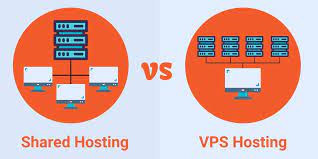Dedicated server hosting is the bedrock of optimal website and online business performance, offering exclusive server resources to a single user. In 2024, the importance of this hosting solution has never been greater. The right hosting provider and server configuration play pivotal roles in ensuring seamless operations, faster loading times, and enhanced security.
This blog post aims to be the ultimate guide for dedicated server hosting in 2024, delving into strategies that empower businesses to make informed decisions for maximum performance. From provider selection to fine-tuning server specifications, readers will gain insights into the latest trends and best practices to stay ahead in web hosting.
Contents
Understanding Dedicated Server Hosting
Dedicated hosting involves leasing an entire physical server exclusively for one user or business, distinguishing it from shared hosting and virtual private servers (VPS). Unlike shared resources, a dedicated server provides users with complete control and access to all server resources.
Benefits of Dedicated Server Hosting
Dedicated servers offer unparalleled advantages, including enhanced security through isolated environments, scalability to accommodate growing workloads, and the ability to customise server configurations for optimal performance. Users benefit from dedicated resources, eliminating the risk of performance degradation due to neighbouring websites, which is common in shared hosting.
Types of Dedicated Servers in 2024
In 2024, dedicated server options have expanded to include traditional bare-metal servers and cloud-based dedicated servers. Traditional bare-metal servers offer physical hardware for exclusive use, ensuring robust performance. On the other hand, cloud-based dedicated servers provide flexibility and scalability by harnessing virtualised resources in a cloud infrastructure. Choosing between these options depends on specific business requirements and preferences.
Learn: Shared vs. VPS vs. Dedicated Hosting: Choosing the Right Web Hosting for Your Needs
Factors Affecting Performance in Dedicated Server Hosting
Performance in dedicated server hosting hinges on several critical factors. The processing power of the CPU, the amount of available RAM, storage speed, and network connectivity collectively determine how efficiently a server can handle tasks. Selecting hardware that aligns with the specific requirements of the website or application is paramount for optimal performance.
Influence of Operating System and Server Software
The choice of an operating system (OS) and server software profoundly affects performance. Different applications and websites may perform better on specific operating systems.
Additionally, the server software stack, including web servers, databases, and other components, can impact overall responsiveness. Regular updates and optimisation of these elements contribute to sustained high performance.
Importance of Server Location for Latency and Speed
Server location plays a critical role in the overall performance of dedicated hosting. The physical distance between the server and end-users directly affects latency and website loading speed. Opting for servers strategically located closer to the target audience helps minimise latency, ensuring a faster and more responsive user experience. Consideration of the geographical distribution of the user base is essential when selecting the server’s location.
Optimising Performance in Dedicated Server Hosting
To maximise performance, carefully choose hardware specifications tailored to your website’s needs. Consider factors such as CPU speed, the amount of RAM, and storage type. Aligning these specifications with the demands of your applications ensures efficient resource utilisation and responsiveness.
Regular Server Maintenance
Frequent server maintenance is crucial for sustained optimal performance. Keep the server up-to-date with the latest software updates, security patches, and firmware upgrades. Implementing proactive monitoring systems allows for real-time issue detection, ensuring swift resolutions and minimising downtime.
Importance of Load Balancing, Caching, and CDNs
Implementing load balancing can help distribute incoming traffic across multiple servers. This can prevent overload on a single server, optimising resource utilisation. Utilising caching mechanisms to store frequently accessed data can also reduce the need for repeated processing.
Integrate Content Delivery Networks (CDNs) to strategically distribute content across geographically dispersed servers. This helps minimise latency and enhance overall website speed. Collectively, these strategies contribute to a smoother and more efficient user experience.
Read: Dedicated Server Hosting For Streaming Content
Future Trends in Dedicated Server Hosting
The integration of cutting-edge technologies marks the future of dedicated server hosting in 2024. Innovations such as edge computing, quantum computing, and 5G connectivity are shaping the landscape, offering opportunities for enhanced speed, responsiveness, and data processing capabilities.
AI and ML for Server Optimisation
Artificial intelligence (AI) and machine learning (ML) are increasingly playing a pivotal role in dedicated server hosting. These technologies enable predictive analytics for server performance, helping optimise configurations and resource allocation in real-time. Automated decision-making based on data patterns ensures efficient utilisation of server resources, enhancing overall performance and responsiveness.
Green Hosting and Energy-Efficient Infrastructure
In 2024, there is a growing emphasis on sustainability in hosting solutions. Green hosting practices involve using energy-efficient hardware, renewable energy sources, and eco-friendly data center designs. As environmental concerns rise, businesses are recognising the importance of reducing carbon footprints. Choosing hosting providers committed to green practices aligns with corporate social responsibility and contributes to more sustainable and energy-efficient hosting infrastructure.
To Sum Up
In web hosting, dedicated server hosting stands as a cornerstone for optimal performance. By understanding the nuances of hardware selection, embracing emerging technologies like AI, and prioritising sustainability, businesses can navigate the complexities of 2024’s hosting environment.
This guide has unveiled the key considerations, from hardware choices to future trends, providing a roadmap for achieving peak performance. As we propel into the future, the fusion of innovation, responsible practices, and strategic decision-making will undoubtedly shape dedicated server hosting.




